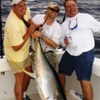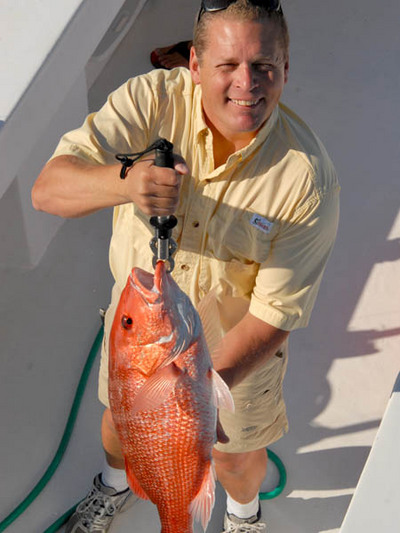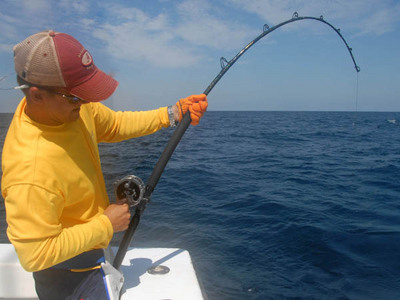Red snapper season begins October 1 and runs through November 21 in the Gulf of Mexico. The season is strictly a weekend season, with fishing permitted from 12:01 am Friday through 12:00 midnight Sunday. The payoff for snapper fisherman this year will be probably the largest number of big red snapper that fishermen in Orange Beach ever have seen. When the federal government closed the Gulf of Mexico to fishing because of the oil spill in the spring, thousands of anglers literally stood on the gulf's bank and waited for the oil to go away. Since the snapper had little or no fishing pressure, they just hung-around Alabama's more-than 5,000 artificial reefs and got fat. Because of the increasing number of snapper, more and more of these fish began to move-in closer to shore. This summer anglers reported catching snapper even in Mobile Bay. "Probably even anglers who charter 4- and 6-hour trips should be able to get their limits of snapper this season," reports Captain Johnny Greene of the charter boat "Intimidator," based in Orange Beach, Alabama.
Besides the plenty of big snapper that will be caught during this special fall season, the other species of fish on Alabama's reefs also have been growing and multiplying. On a test trip the last week in September, Greene's customers caught 30- and 40-pound amberjacks, garbage-can-lid-sized triggerfish and plenty of vermilion snapper, white snapper, king mackerel and Spanish mackerel. "The further offshore you go, the greater your odds are for catching bigger snapper," Greene says. "I'm surOrange Beach fishinge we'll numbers of 12- to 20-pound-plus red snapper being brought-in this fall. There are plenty of boats available, the fishing is fantastic, and red snapper are delicious to eat."
Some anglers have been concerned about the safety of eating their catches. However, as one angler told us, "Before the oil spill, no one was testing any of the fish coming-out of the Gulf of Mexico for safety standards. However, since the oil spill, there have been more than 20 scientists checking thousands of fish being taken from the gulf. In my opinion, we can be much-more confident that the fish we catch are safe to eat then we could have been before the oil spill." Also, Dr. Bob Shipp, the head of the marine-sciences department at the University of South Alabama in Mobile, and his colleagues have tested the livers of red snapper from the gulf and have found them healthy.
Article by John Phillips
Fishing Reports by Capt Johnny Greene
www.gulfshoresdeepseafishing.com
251-747-2872



